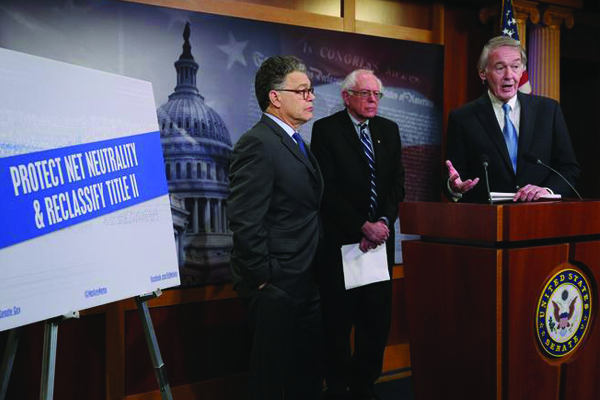Vastly expanding the reach of taxpayer-funded broadband networks, and overriding common-sense state technology laws — as President Obama recently proposed — is the perfect example of the old adage, "If it sounds too good to be true, it probably is." Colorado businesses and taxpayers must turn a skeptical eye toward municipal or government-owned networks (GONs) and, fortunately, our state laws allow local citizens to vote before such an expensive investment is foisted on them. The robust and excessively rosy claims for GONs — which the president echoed in his announcement — are centered on assertions that that they work well and cost taxpayers nothing. These claims simply don't stand up to long-term scrutiny, as demonstrated by the experience in cities around the country.
Expect this debate to heat up fast nationally and here in Colorado. In fact some local government advocates are proposing to eliminate your right to vote on GONs, hoping to duck the in-depth scrutiny that comes along with a local election.
Consider these basic facts that some government advocates don't want you to know:
Look at history. GONs routinely disappoint consumers and taxpayers. Many municipal networks are more expensive to consumers than services offered by private network providers. In fact, advocates often say that there is no cost to taxpayers at all, despite ample evidence to the contrary. And when things go awry, local taxpayers foot the bill - which results in higher taxes, precious local funds diverted from other priorities, or both.
Consider the costs. Local governments routinely tell their citizens that budgets are often too tight to adequately fund public safety, transportation or education, to name just three essential government functions. Adding GONs to the mix is one more (and very expensive) demand on local tax dollars.
Can the private sector do it better? The past troubles that GONs have had are public record and well-documented. A solution that reduces the risk to taxpayers and local budgets is to partner with the private sector to bring cutting-edge broadband services to more Colorado communities. Effective routes to do this include providing tax incentives to build out networks, updating ordinances to reflect ever-changing technologies and speeding up permitting processes. Companies have invested hundreds of millions of dollars in Colorado over the past three years — including Comcast's WiFi investment for downtown Denver, and the gigabit network CenturyLink is deploying in Denver and Colorado Springs. Sustainable broadband deployment is assured when the private sector can respond to changing technologies and provide state-of-the-art service — a level of agility that government just doesn't have.
The desire here in Colorado — and across the country — for high-speed, low-priced broadband access is understandable and we applaud President Obama for drawing attention to this issue. But as with every major taxpayer investment, the risks and rewards must be weighed by taxpayers and local elected officials. Local governments can and should aggressively advocate for the rollout of broadband in their communities, but it's clear that government is not best suited to build, subsidize, manage and maintain its own network.
That's why a robust local dialogue leading to an up-or-down vote is the best route to ensure that taxpayers know what they're being asked to buy — and, potentially, bail out. Coloradans should push back hard against a Washington-designed solution being sold as a broadband panacea.
Jeff Wasden is president of the Colorado Business Roundtable.

